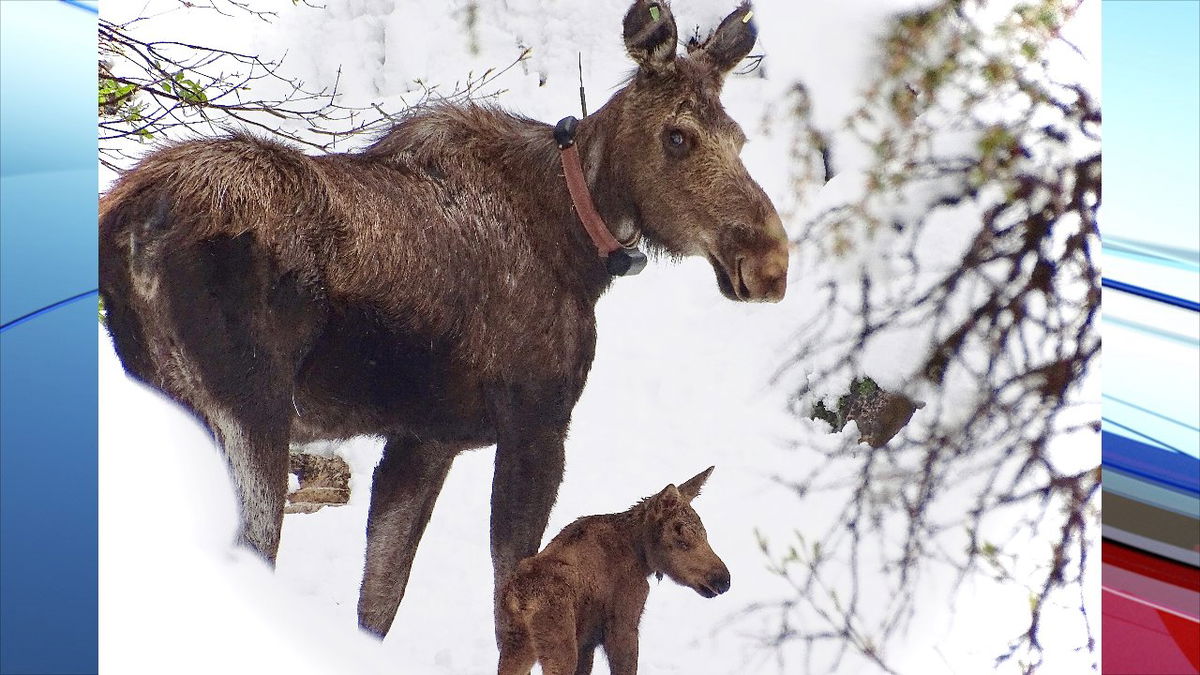Researchers study moose mortality

BOISE, Idaho (KIFI/KIDK)-New research from the Idaho Fish and Game Department and University of Idaho indicates moose populations are declining.
In the short term, 90% of adult cow moose with tracking collars survived through the fall, but long term numbers are another story.
Of 9 radio-collared moose than died, more than half fell to parasites or disease, mostly ticks. Two were attributed to predators; one to a wolf and the other to a lion or bear. Another was killed by a car and one animal’s death couldn’t be determined.
A new, multi-year moose research project began in early 2020 and biologists hope it can root out ways to help the animal rebound or at least identify why their numbers are declining.
This winter, biologists are tracking 112 moose and researchers were surprised at how well they survived the fall.
Moose populations have declined in parts of the U.S. since the 1990s, and concerns about the long-term health of moose populations nationally have escalated since the early 2000s.
After Idaho’s moose populations peaked in the 2000s, harvest records, field staff and hunter reports indicated their numbers in many regions were stable or declining
“Now that we’ve got the picture of adult cow survival, which isn’t horrendous, we’ve got questions about pregnancies being carried to term and early calf survival, which we’re trying to take a deeper look at,” Hurley said. “The next thing we plan to look at is calf survival, and really understand calf survival from birth through the first year,” Hurley added. “That seems to be an area of concern.”
He hopes researchers can hone in on the causes of mortality.






